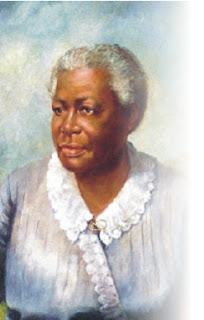
Black people, black women in particular, are discriminated against and frown upon as soon as they mention that they are on welfare. Golden provides us with a hands on account of her encounter with the welfare system; one that left her feeeling "dehumanizing and humiliated." In the article she explained how the self-suffiency coaches, also known as SSCs, were very demeaning and disrespectful. There is no compassion or sense of understanding from the caseworkers. They gave little thought to the education background of the welfare recipients before placing them into a job, which was normally a low-paying housekeeping or laudry service job. The caseworkers were insensitive to the black women on welfare. This insensitivity was primarily due to the preconceived notions and stereotypical ideas held by many of the welfare employees. Black women on welfare were deemed as illiterate, poor, unmotivated, lazy, and irresponsible. However, the opposite is true. Golden explains that "single-parent femailes are likely to have a strong resource base of friends and community advocates. Managing all these levels of interpersonal relationships is the cornerstone for a solid career in any field." The interpersonal relationships she speaks of in this quote are the skills such as time management, budgeting, conflict resolution, and home maintenance skills which are all required by these single parent women to maintain a stable household. Furthermore, the idea that black single women are incapable of literacy should be rejected. "Motherhood is another form of learning that shapes the lens that single women apply to their lives." Traditionally, motherhood is seen as an important, natural, and nurturing role, however, no one ever really goes in-depth of the management skills, communications skills, and caring ability required from these mothers. These skills are normally aquired after trial and error and a couple of years. First time mothers are not given a guide nor do they take a class or given a set of rules, they are in a sense, just thrown in there to raise children. Little value goes to the maternal literacy and ablity mothers possess. If we thought about the skills needed, time required, and ablity of mothers, we could look at it as a full time job, and if you are a single parent, think of it as a full time job plus countless hours of overtime. Most single parent mothers need help; whether it's financial, emotional, or eduational. Although many do abuse the system, welfare should be a trustworthy, compassionate system that caters to the need of these strong black women. Not black women alone, but the every citizen in need in the United States. They should implement a time frame in which recipients are allowed to receive government assistance and also provide a set of regulatory rules to prevent abuse. Altogether, the system should be a boost to people, something to get them started, a resource used in order to better themselves, not a cushion or way of living. As a whole, the welfare system in the United States needs vast improvements. It starts with the welfare worker then trascends to the recipients and the taxpayers.
-Tiara Denson









